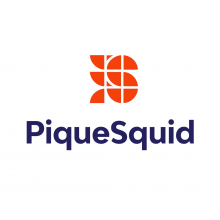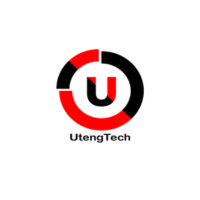
There are 3 Companies in Zimbabwe
that provide Go development Services!
Zimbabwe’s combination of relatively stable governance, strategic location, and young and innovative population has made it an attractive destination for multinational companies
Discover Top IT Companies in Zimbabwe specialized in Go and other related services. Find the best IT service providers for your projects.
Go, also known as Golang, is an open-source programming language created by Google. It is designed for simplicity, efficiency, and concurrency, making it a versatile choice for building a wide range of applications, from web services to system software.
Handpicked companies • No obligation to hire • 100% risk-free
Explore Top Go development Companies in Zimbabwe
Pique Squid transcends the ordinary. This elite IT and marketing firm leverages its cutting-edge approach and unmatched proficiency to elevate.
Services:
We providing a wide range software development, IT infrastructure management, website development, website design, digital marketing, bulky sms, email
Services:
We specialise in delivering technology and IT solutions designed to propel your business forward. From streamlining operations to and driving growth.
Services:
Filter Go development Companies in Zimbabwe by Cities
Dive deeper and find the company you need close to you or, from a specific city you prefer. Some of the best companies come from smaller places
Find more Go development companies around the world
TechBehemoths is the world's most advanced and user-friendly platform to match IT Companies with real clients without hustle.
The IT Industry in Zimbabwe: Companies, Insights & Data
Zimbabwe’s ICT sector was worth an estimated $3.11 billion in 2017, constituting 21.7% growth from 2016. The telecommunications segment makes up the vast majority of this at around $3.2 billion. Other important contributors are broadcasting, data center services, cloud, IT, and BPO.
Zimbabwe’s combination of relatively stable governance, strategic location, and young and innovative population has made it an attractive destination for multinational companies. Several notable firms such as Deloitte and Orange have offices in Harare, and some have based their entire African operations on these offices.
Why you should work with Zimbabwean IT companies
Digital service providers in the cloud and BPO markets are largely involved in the provision, rather than the development, of services, whilst Zimbabwean firms are more prevalent in the fintech and eCommerce markets. The physical technology required for the delivery of digital services is typically imported, and it is not clear that Zimbabwe could produce these products more efficiently.
A key strength in the digital services market is the acceptance of mobile services. Any consumer solution entering the market would have to be mobile-compatible. Mobile healthcare services are expected to grow particularly rapidly as the sophistication of these offerings increases.
What to pay attention to when working with Zimbabwean IT companies and web agencies
On the consumer side, it is vital that any proposed digital service offering be mobile-compatible due to the prevalence of mobile usage in Zimbabwe. Furthermore, smartphone penetration in the region is steadily increasing, thus increasing the sophistication of viable digital service offerings.
Given the acceptance of fintech by the Zimbabwean population, a possible route to entry in the consumer market is to acquire one of the many smaller fintech firms in the industry. This would resolve some of the primary barriers to entry, most specifically bureaucratic red tape and a lack of local knowledge.
On the corporate side, the most effective route to entry is likely through partnerships with smaller local resellers. This model is already popular in the Zimbabwean market. A key differentiating feature here will be how well the service adapted to the Zimbabwean market.
How reliable are Zimbabwean-based IT companies?
Considered to be one of the biggest African IT hubs, Zimbabwean web agencies and IT companies compete only with Ethiopian ones in terms of reliability. As many foreign companies have already invested and thus developed the local IT infrastructure and industry overall, Zimbabwean IT companies find it easier than other neighboring countries to enter the global market and provide their services for accessible prices.
How the Zimbabwean IT industry relate to the neighboring countries?
Zimbabwe is actively trying to establish itself as a key ICT hub in the East African region. The country appears to be making good progress in this regard, helped by having a strong connectivity infrastructure and a young, innovative population. Despite this, the country currently faces considerable political uncertainty, and issues surrounding the transparency of tenders remain a major barrier to growth.
Although Zimbabwe’s score for the metric measuring the economic impact of ICT is not high in absolute terms, it ranks 54th in the world. This supports the conjecture that businesses, government, and consumers will be receptive to new technologies as ICT has already had a substantial impact on the Zimbabwean economy.
Is Zimbabwe Tech Industry Ready for 2022?
At the end of 2021, Zimbabwe announces big plans for the Global Entrepreneurship week that will hopefully boost the startup scene in the country for 2022. The name of the program that gives hope to tech entrepreneurs from Zimbabwe is Startup Huddle, and it has already a location in Harare. Hopefully that the direct consequence of this program will expand in 2022 as a new startup boom focused on tech and IT
What is Go and what are its benefits for your projects?
Go, also known as Golang, is an open-source programming language created by Google. It is designed for simplicity, efficiency, and concurrency, making it a versatile choice for building a wide range of applications, from web services to system software.
More than 363 verified IT companies leverage Go in their development projects. These companies range from startups to tech giants like Google, Uber, and Dropbox. They appreciate Go's speed, reliability, and ease of use for building scalable and performant software.
Go service providers rely on various tools and technologies to enhance their development process. Some commonly used tools include the Go compiler, which transforms Go code into executable binaries, and the Go standard library, which offers essential packages for building applications. In terms of deployment, containerization technologies like Docker are frequently used to package Go applications for consistency and portability.
You may be wondering, how is Go Different from C, Rust, and Java. So, below we’ll try to show you more about the differences that exist between them:
-
Go vs. C: While both Go and C are low-level languages, Go offers modern features like garbage collection and memory safety, which simplify programming. Go is also more concise and expressive than C, making it easier to read and maintain. But if you think your business needs companies that also specialize in C, you can find them on this page
-
Go vs. Rust: Rust emphasizes memory safety and control without sacrificing performance. While Go offers simplicity and readability, Rust provides fine-grained control over memory and is suitable for systems programming with a focus on safety.
-
Go vs. Java: Java is a high-level language often used for building enterprise-level applications. It relies on a virtual machine (JVM) and is known for platform independence. Go, on the other hand, compiles native code, offering better performance and efficiency for certain use cases.
Languages related to Go in terms of use cases and features include Python, Ruby, and Node.js. These languages, like Go, are suitable for building web services and backend applications and are known for their developer-friendly features. If you need these programming languages in addition or instead of Go, just click on their corresponding words above to find verified vendors providing those services.
When selecting IT companies that use Go for your project, consider factors such as the company's experience with Go, their portfolio of past projects, client references, and their understanding of your specific project requirements. Look for companies that align with your project's complexity, scalability needs, and budget.
Go service providers are essential for various project types, including:
-
Web Services: Go is well-suited for building RESTful APIs and microservices due to its excellent performance and simplicity.
-
Networking Applications: Go's concurrency support makes it ideal for developing network-related software such as servers and proxies.
-
Cloud Applications: Go's efficiency and speed are valuable for building cloud-native applications and serverless functions.
-
System Software: Go can be used for developing system utilities, command-line tools, and operating system components.
Go is a versatile language, and its speed, simplicity, and efficient concurrency model make it suitable for a wide range of projects, making it an excellent choice for modern software development.


